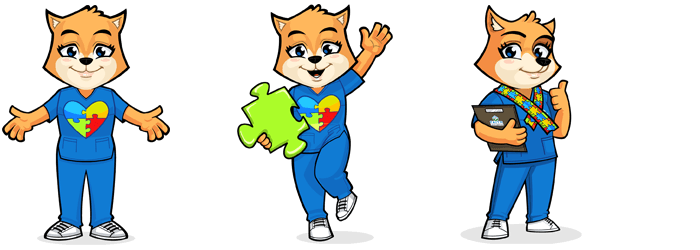The value of having a distinct perspective in today’s competitive employment market is paramount, given the rapid pace and constant change in the industry. While technical skills are important, what really makes people stand out and helps them advance in their jobs is their ability to combine creativity, adaptability, and perseverance. In order to foster creative thinking in modern workplaces, this essay explores in-depth job & career skill development.
Understanding the landscape of job & career skill development
Industries and job descriptions have been disrupted by the emergence of AI alongside the digital revolution. In a lot of cases, new capabilities are replacing or adding to usual skills. This has led to a shift towards developing people with transferable skills that help them outside their present roles.
The role of job training programs in enabling people to acquire these skills could not be undermined. Through these programs, individuals learn not only technical skills but also “soft skills” such as how to communicate, solve problems, and work together. With the surge of remote work and online collaboration, the importance of flexibility and computer literacy has been more prominent.
Those who want to stay abreast of this day’s employment situation need to be artful in the use of digital tools and technologies. As a result, gaining and honing digital and technology skills through online classes, workshops, and certifications has become one of the key elements of career development.
The role of mentorship in interview classes
The ones who just started or changed their careers could find it really difficult to get used to the different bits and pieces of the job market. Mentorship in Interview classes at the beginning of a career is important as they provide guidance and support.
Learning interview techniques from an expert in the class will be the way to express yourself clearly, how to act appropriately, and how to highlight your best traits. In order to enable mentees to do away with obstacles and seize all opportunities, mentors act as trusted consultants by giving them individualized advice based on their own experiences.
Besides the fact that mentoring allows one to gain the necessary skills and abilities that are required in today’s job market, it also helps in developing self-confidence and adaptability which are no less important.
Embracing digital and technological education
Proficiency with digital gadgets is growing in significance nowadays due to the prominent role of automation in our society. The term “digital literacy” embodies a huge spectrum of skills, ranging from simple computer use to more complex skills such as data processing and programming.
People strive to stay competitive and ahead of technology in today’s job market by learning for life and keeping up with technology. People can attain digital and technology education via different educational programs.
Coursework, tutorials, and interactive learning modules are just some of the numerous resources on online platforms that suit learners all over the world. Digital education gives people the competencies needed to succeed in the digital age, either by teaching them how to code, using analytical tools to analyze data, or understanding cyber security.
Key job and career skills for unique minds
- Creativity and innovation
Nowadays Employees who value the ones who can think creatively and who find unconventional solutions as growth is rooted in innovation. Innovative thinking can be achieved if one is ready to scrutinize old-set conventions, experiment, and be creative.
Creativity is an inherent characteristic of thinkers who think outside the box and it is an important factor of success in many industries such as marketing, product design, and process improvement. - Adaptability and resilience
The ability to cope with new situations, and new circumstances, and overcome challenges is essential to survive in this unstable and unpredictable world.
People who can persist in the face of failures are more likely to make a way out of obstacles, grasp opportunities when available, and recover quickly from their mistakes. Adaptability is the trait of rising to an occasion, changing behavior according to new conditions, and getting experience from past failures. - Emotional intelligence
The ability to perceive, name, and manage one’s own and other people’s emotional condition is emotional intelligence (EI), also known as emotional quotient. Higher emotional intelligence scores are associated with more empathic individuals who can persuade others and can manage tough interpersonal tasks at work.
The aptitude to connect with others on a deeper level, find healthy ways to settle disputes, and build a workplace that is receptive to creativity and teamwork are the components of emotional intelligence. - Critical thinking and problem-solving
The ability to analyze situations analytically and generate practical solutions still remains one of the prime skills in today’s data-oriented world.
Critical thinking involves the examination of arguments, evidence, and assumptions to draw logical conclusions. In a similar way, to solve a problem, one should initially identify the problem, then design a creative answer, and finally put that answer into action. - Communication and Collaboration
Transparency and mutual understanding foster effective collaboration and teamwork. People, who have good communication abilities, attentive listening, and who can state the issues clearly, are worth their weight to any company. The foundation of creating a culture of collaboration relies on trust, open-mindedness of different viewpoints, and collective utilization of knowledge and abilities towards common goals.
Conclusion
In today’s dynamic employment environment, success depends on cultivating unique thinking. The combination of technical abilities with creativity, adaptability, emotional intelligence, critical thinking, and communication is what makes people stand out and drives them to succeed professionally.
Job training programs will help people prepare for future challenges and possibilities as we adjust to new technologies and market dynamics. People may shape their own futures in a world that is always changing by committing to lifelong learning, finding a mentor, and improving fundamental job and career skills. This will allow them to confidently and resiliently negotiate the intricacies of today’s workplace.













